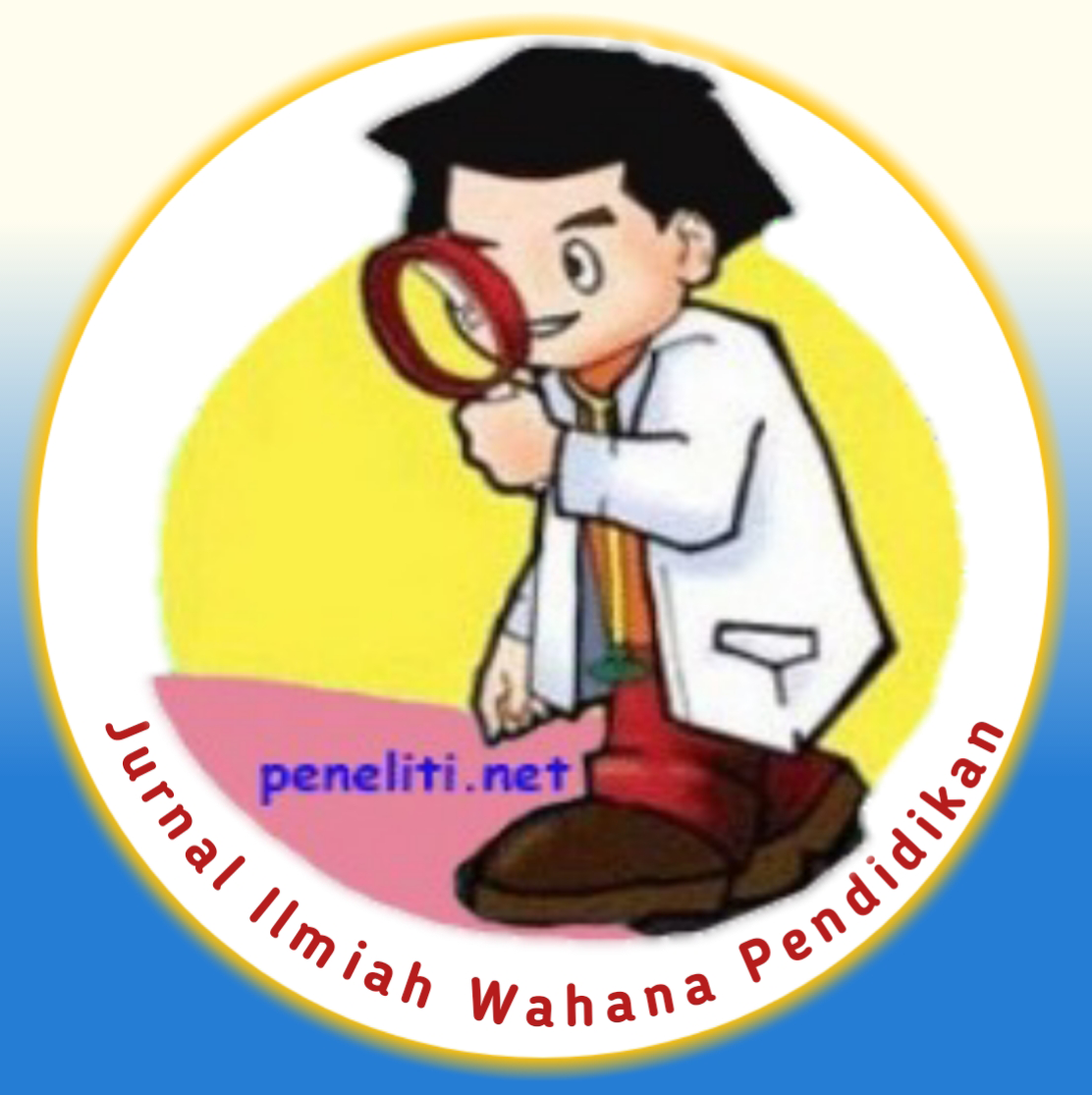Pendidikan Agama Kristen dalam Keluarga: Pengembangan Nilai Mealtable Sharing Terhadap Keharmonisan Hubungan Kasih Antara Orang Tua dan Anak di Jemaat Gmim Bukit Sion Mapanget
Abstract
The purpose of this study is to describe and analyze the development of the values contained in Mealtable Sharing related to the value of harmony in the family, the process of developing the value of mealtable sharing in the GMIM Bukit Sion Mapanget Congregation in relation to the harmonious relationship of love between parents and children. This research method is a descriptive qualitative research conducted at the GMIM Bukit Sion Mapanget Congregation. Data were collected through observation, interviews and documentation studies. From the results of the analysis and interpretation of the data obtained that: (1). Eating together and talking together "mealtable sharing" is often done by families in which there is an atmosphere to give each other love, is a place for teaching and educating children, can strengthen harmonious relationships between parents and children and can improve children's development. (2). The inhibiting factors are the lack of parental time due to busy work and the distance that separates them, the child's lack of trust in parents, and the presence of technological developments that limit the interaction between parents and children. (3). There is also the role of parents by providing time from a lot of busy work, creating a comfortable atmosphere and teaching about wisdom in using cellphones. (4). There is also the role of Church leaders through preaching and pastoral services to be able to direct the understanding of parents to be examples and role models, take advantage of technological sophistication, introspect themselves, and rebuild trust with children.
References
Antone, H. S. (2019). Pendidikan Kristiani Kontekstual. Jakarta: BPK Gunung Mulia.
Bessie, N. M. (2018). Pengaruh Konseling Kristen Dalam Membangun Keharmonisan Pasangan Keluarga Kristen. Jurnal, 164-172.
Daradjat, Z. (2009). Membina Nilai-Nilai Moral di Indonesia. Jakarta: Bumi Aksara.
Girsang, N. (2020). Tunas Zaitun Mazmur 128:1,3b. Pendidikan Kristiani Anak di Tengah Keluarga, Gereja, Sekolah, dan Masyarakat. Jakarta: PT. Adhitya Andrebina Agung.
Groome, T. H. (2014). Christian Religious Education. Jakarta: BPK Gunung Mulia.
Gunarsa, Y. S. (2012). Asas-asas Psikologi Keluarga Idaman. Jakarta: BPK Gunung Mulia.
Liliweri, A. (2017). Komunikasi Antar-Personal. Jakarta: Prenadamedia Group.
Mahali, A. M. (2004). Kewajiban Timbal Balik Orang Tua - Anak. Yogyakarta: Mitra Pustaka.
Nick. (2002). Keluarga Kokoh dan Bahagia. Batam: Interaksara.
Pudjono, M. (1995). Dasar-Dasar Fisiologi Emosi. Buletin Psikologi, 41-48.
Saputra, D. S. (2017). Perkembangan Spiritual Remaja SMA Dharma Putra. Jurnal Psikologi, 60-67.
Soemantri, S. (2020). Pelatihan Percakapan Antara Ibu dan Anak Dalam Bahasa Lokal: Berkontribusi Pada Pembentukan Karakter Positif Anak. Dharmakarya: Jurnal Aplikasi Ipteks untuk Masyarakat, 216-224.
Suparman. (2010). Tinjauan Tentang Konsep Keharmonisan Keluarga. Jurnal, 1-39.
Tisngati, U. (2014). Pengaruh Kepercayaan Diri dan Pola Asuh Orang Tua Terhadap Prestasi Belajar. Jurnal Derivat, 8-18.
Yung, L. K. (2020). Hidup Bersama: Menghayati Kembali Arti Hidup Sebagai Komunitas Keluarga Allah. Indonesia: Duta Harapan Dunia




